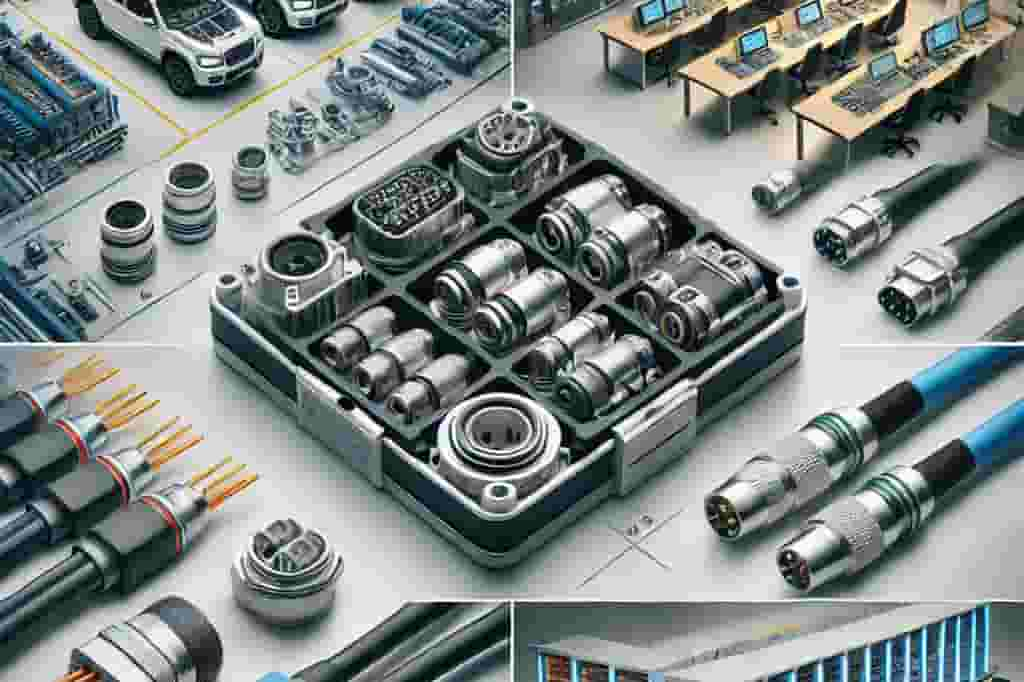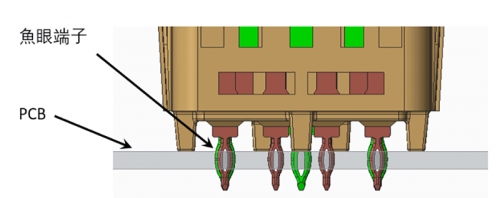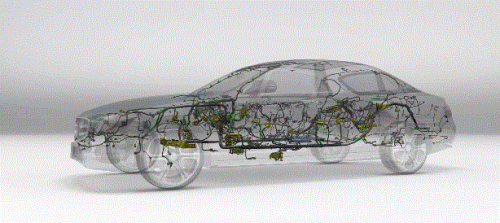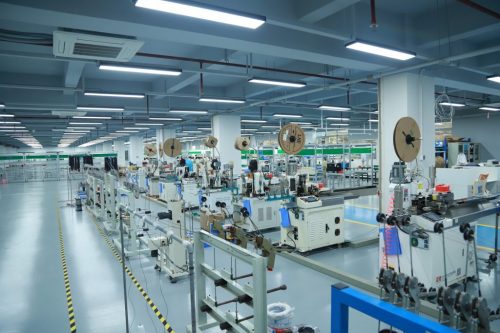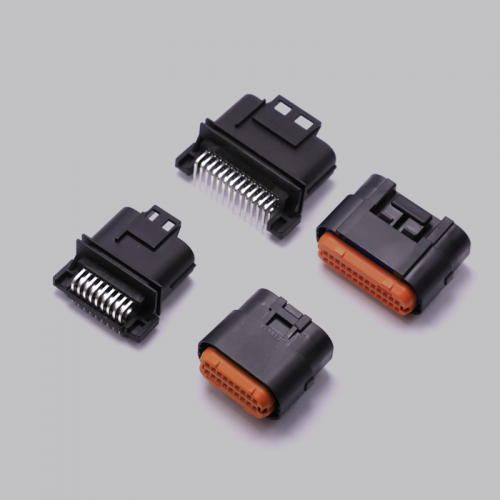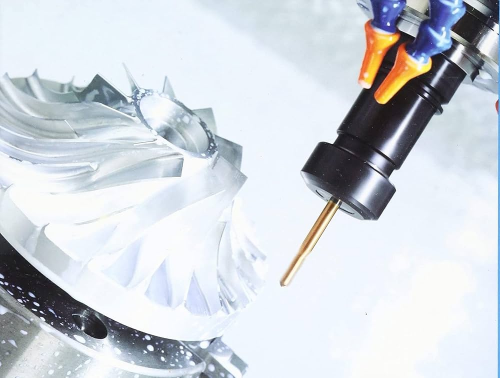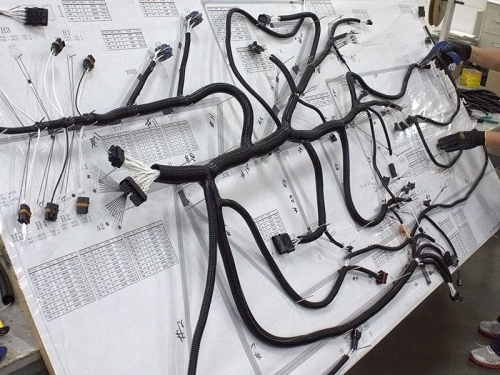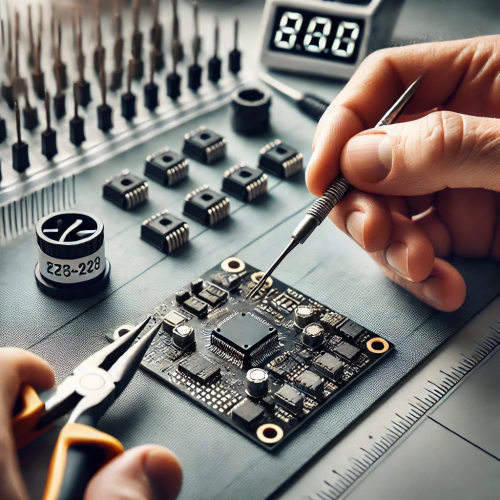At Konnra, we’ve always believed that connectors and wiring harnesses are the lifeblood of modern electronics, quietly making sure that everything from your smartphone to complex industrial machinery runs smoothly. But we know it’s easy to overlook these little heroes! That’s why we’re excited to share how the latest trend in modular design is shaking up the connector world, bringing fresh opportunities for flexibility, efficiency, and scalability. In this article, we’ll walk you through what modular design in connectors is all about, dive into the key advantages, and explore the wide range of applications it opens up. Whether you’re looking to streamline your production, enhance your products, or just curious about the future of connectors, we at Konnra are here to help you navigate the possibilities.
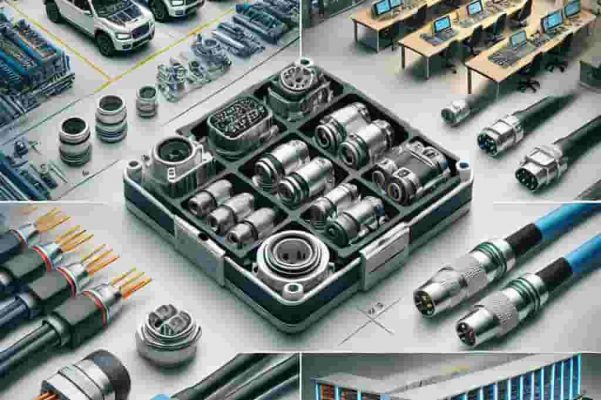
What is Modular Design in Connectors?
Modular design refers to a method of creating products or systems that are composed of distinct, interchangeable components, or modules. In the context of connectors, modular design means that the connector is built from separate parts—such as the housing, contacts, and insulators—that can be easily assembled, disassembled, and replaced. This design philosophy contrasts sharply with traditional, monolithic connectors, which are typically made as single, integrated units.
The modular approach allows each component of the connector to be customized or upgraded without having to replace the entire unit. For example, if a specific application requires higher data transfer rates, only the relevant module needs to be swapped out, rather than the entire connector. This modularity not only enhances the versatility of the connectors but also simplifies maintenance and reduces costs.
Advantages of Modular Connectors
The adoption of modular design in connectors brings several significant advantages:
1. Flexibility and Customization
One of the most compelling benefits of modular connectors is their flexibility. Different modules can be combined to create a connector that perfectly meets the specific needs of an application. This flexibility is particularly beneficial in industries with diverse and evolving requirements, such as telecommunications, automotive, and industrial automation.
For example, in a manufacturing plant, machines might require connectors that can handle both power and data signals. With modular connectors, a company can easily configure a connector that combines these functions, rather than sourcing separate connectors for each purpose. This not only simplifies the design process but also reduces the number of parts that need to be managed.
2. Scalability
Modular connectors are inherently scalable. As systems grow or change, the connectors can be easily modified by adding, removing, or upgrading modules. This is especially advantageous in fields like network infrastructure, where demands on data transfer speed and bandwidth can increase rapidly. Instead of overhauling the entire system, companies can simply upgrade the relevant modules within their connectors to meet new requirements.
Scalability also applies to the physical size of the connectors. Modular designs can be tailored to fit into the available space, making them ideal for compact or tightly packed environments, such as consumer electronics or automotive applications.
3. Cost Efficiency
Modular connectors can lead to significant cost savings in both production and maintenance. Since the modules are standardized and often mass-produced, they benefit from economies of scale, which drives down the cost per unit. Additionally, companies can reduce inventory costs by stocking only the necessary modules, rather than a wide range of complete connectors.
Moreover, when a connector fails or needs an upgrade, only the affected module needs to be replaced, rather than the entire connector. This reduces repair costs and minimizes downtime, which is crucial in industries where continuous operation is critical.
4. Ease of Maintenance and Repair
Maintenance is much simpler with modular connectors. In the event of a malfunction, technicians can quickly identify and replace the faulty module, rather than troubleshooting the entire connector. This modularity not only speeds up repairs but also reduces the need for specialized skills, as each module can be pre-tested and certified for performance.
This ease of maintenance is particularly important in environments where downtime can be costly or dangerous, such as in industrial automation or aerospace applications. By minimizing repair times and simplifying the replacement process, modular connectors help ensure that systems remain operational and safe.
5. Design Flexibility
Modular connectors offer unparalleled design flexibility, allowing engineers to quickly adapt to changing market demands or technological advances. For example, if a new data transmission standard emerges, a modular connector can be upgraded by simply swapping out the relevant communication module, rather than redesigning the entire system.
This adaptability also means that companies can bring new products to market faster, as they can prototype and test different configurations without having to go through lengthy redesign processes. This speed to market is a significant competitive advantage in fast-moving industries like consumer electronics or telecommunications.
Applications of Modular Connectors
Modular connectors are making a significant impact across various industries. Here are some key areas where they are particularly beneficial:
1. Industrial Automation
In industrial settings, where machines and systems are often interconnected, the need for reliable and flexible connectors is paramount. Modular connectors excel in these environments by offering custom configurations that can handle the unique requirements of power, signal, and data transmission.
For example, in a manufacturing line, different machines may require different types of connections—some may need high power, while others may need precise data communication. Modular connectors allow for these varied needs to be met with a single, customizable solution. This not only simplifies the setup but also ensures that the system can be easily reconfigured as production demands change.
2. Telecommunications and Networking
The telecommunications industry is characterized by rapid technological advancements and increasing demands for higher data transmission speeds. Modular connectors provide the flexibility needed to keep pace with these changes. For instance, a network provider can upgrade its infrastructure by replacing existing modules with newer ones that support faster data rates or higher bandwidth.
Moreover, modular connectors are ideal for applications where space is at a premium, such as in data centers. They can be configured to fit within tight spaces while still delivering the necessary performance, making them an excellent choice for modern communication networks.
3. Automotive Industry
The automotive industry is another area where modular connectors are making a significant impact. As vehicles become more complex, with numerous electronic systems for safety, entertainment, and engine management, the demand for reliable, high-performance connectors has grown.
Modular connectors are particularly well-suited to the automotive environment because they can be designed to withstand harsh conditions, such as temperature extremes, vibration, and moisture. Additionally, as electric vehicles (EVs) become more prevalent, modular connectors are being used to develop and upgrade charging systems, ensuring compatibility with evolving standards and technologies.
4. Consumer Electronics
In the world of consumer electronics, where devices are getting smaller yet more powerful, modular connectors offer the perfect solution for compact and efficient connections. For example, modular connectors are commonly used in smartphones, tablets, and wearable devices to manage connections between various internal components, such as the battery, display, and sensors.
The ability to customize connectors to fit within the tight confines of these devices without sacrificing performance is a key advantage. Additionally, as consumer demands shift and new features are introduced, modular connectors can be quickly adapted to accommodate these changes, ensuring that manufacturers stay ahead of the curve.
5. Medical Devices
In the medical field, where precision and reliability are paramount, modular connectors provide the flexibility needed to meet the specific requirements of various medical devices. From diagnostic equipment to patient monitoring systems, modular connectors enable the creation of customized solutions that ensure accurate data transmission and power delivery.
Moreover, the ease of maintenance associated with modular connectors is particularly beneficial in medical settings, where downtime must be minimized to ensure continuous patient care. _China Connector Corporation_, for example, has been at the forefront of developing modular connectors that meet the stringent demands of the medical industry, offering products that combine reliability with the adaptability needed in this critical field.
Conclusion
Modular design in connectors represents a significant leap forward in how we think about and use these essential components. By offering unparalleled flexibility, scalability, cost efficiency, and ease of maintenance, modular connectors are becoming the preferred choice across a wide range of industries. Whether in industrial automation, telecommunications, automotive, consumer electronics, or medical devices, the benefits of modular connectors are clear.
As technology continues to evolve, so too will the applications of modular connectors. Companies like China Connector Corporation are leading the charge in this area, developing innovative solutions that not only meet today’s needs but also anticipate the demands of tomorrow. For businesses looking to stay competitive, adopting modular connectors can provide the edge needed to keep pace with the rapid advancements in technology and market demands.
